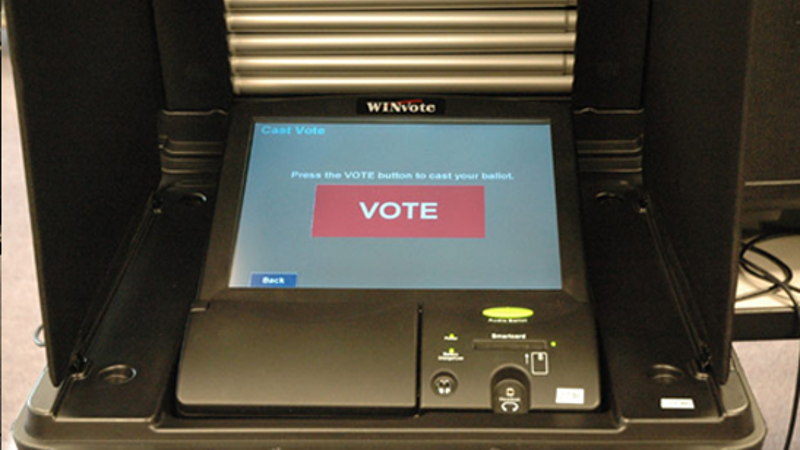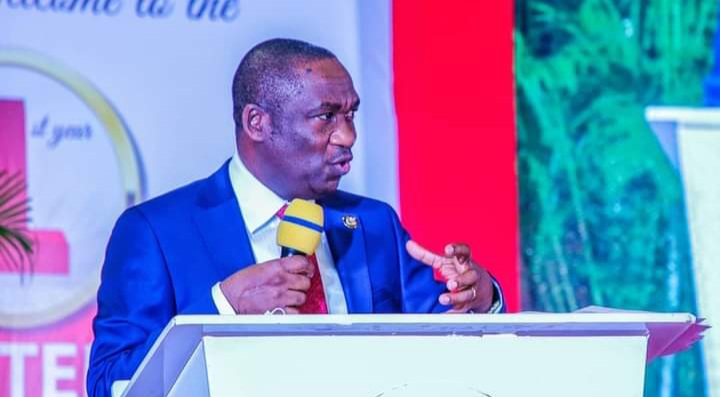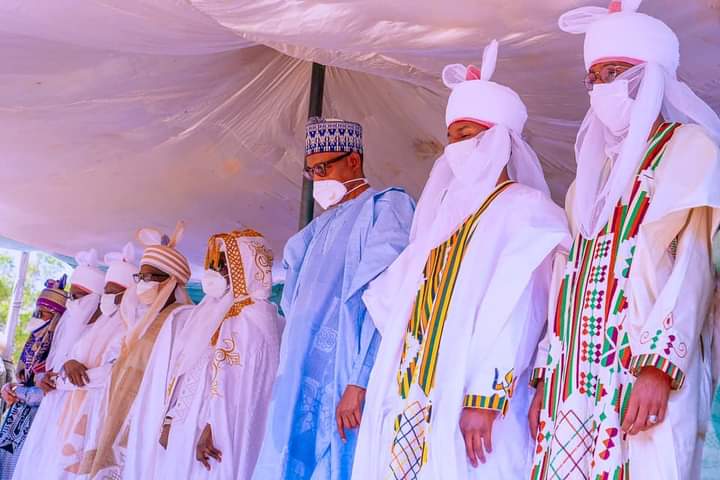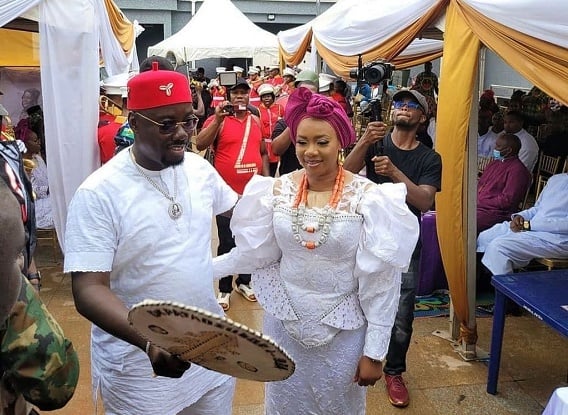After the controversies that rocked the 2019 general election; and the first two off-cycle gubernatorial elections in Kogi and Bayelsa States, it was clear that Nigerians were not going to go to the polls in 2023 without a fundamental review of the main electoral legislation, the Electoral Act 2010, which was last tinkered with 10 years ago by the 6th National Assembly.
Indeed an attempt was made to that effect in the prelude to the 2019 election but all the efforts put into it by the 8th National Assembly led by Senator Bukola Saraki was to come to naught as President Muhammadu Buhari at the eve of the 2019 election refused to append his signature to the Electoral Act (Amendment) Bill, 2018, citing the belatedness of the piece of legislation.
The rump of that Bill was to become the starting point of the 9th National Assembly’s inherited task to passing the vexed legislation. After the Judicial drama that played out in Alhaji Atiku Abubakar’s petition against the declaration and return of candidate Muhammadu Buhari at the 2019 election particularly around the use or otherwise of a server by the Electoral Commission for electronic transmission of results, more impetus was given to the clamor of Nigerians led by opposition political parties and the civil society for amendment of the Electoral Act to make provision for electronic voting and transmission of results. It seemed that Nigerians had had enough and were determined to go to the polls in 2023 leveraging technology at least, to the extent practicable.
On its part, the Electoral Commission showed remarkable commitment to these yearnings of Nigerians by introducing what it called Election Review Portal in some bye-elections in Nassarawa, Cross River, Imo, Lagos and elsewhere between 2019 and 2020. It was a platform that allowed for the uploading of polling unit results in real-time at the conclusion of election in such polling units. This innovation was hailed as a milestone by stakeholders in the Nigerian electoral space, and was seen as a smoking gun of INEC’s commitment to digitizing its processes. This is all the more so, as the Commission embarked on this project in the absence of a clear-cut legal framework recognizing the use of the portal in elections. It was however the first indication that the Commission was ready to put the era of manual transmission of results behind it.
Advertisement
It was against this background that Pro-Democracy Advocates reiterated their demand for the provisioning of electronic voting and transmission of results in the proposed Electoral Act (Amendment) Bill which is clearly one of the most consequential pieces of legislation in the last decade of our Fourth Republic.
However, the back and forth that greeted the legislation was the first indication that the 9th National Assembly may not be trusted in terms of its commitment to the legislation despite several denials by Senator Kabiru Gaya-led Senate Committee on INEC. After much pressure from Nigerians through protests from civil society groups calling on the Assembly to expeditiously pass the legislation long after it was due for passage, it would take the bizarre revelation that some provisions of the proposed Bill (as agreed upon by Stakeholders at the public hearing) had been tampered with, to jolt the National Assembly into action.
It is telling that the two major provisions of the Bill said to have been corrupted were those dealing with the power of INEC to review declarations and return before issuing Certificates of Return; and the electronic transmission of result. Apparently whilst stakeholders at the public hearing had reached a consensus on these provisions, the proposed Bill due for the consideration of the Senate as leaked to the public, strangely had slightly different provisions. It was the first sign of bad faith.
Advertisement
At the end of the rebuttals, denials and assurances of good faith that ensued from different members of both chambers of the National Assembly, the ‘original’ version of the Bill was tabled at plenary for the all-important vote last week. From what we know now, it would appear that those who tampered with the Bill ab initio, had more in their sleeves.
In both chambers, whilst other provisions of the proposed legislation had a smooth sail during the clause-by-clause consideration, the contentious section 52(3) of the legislation dealing with the manner of transmission of results, stuck out like the proverbial sore thumb. What to do? Whilst the draft Bill gave INEC the powers to “transmit results electronically where and when practicable”, apparently as a sequel to its powers under Sections 78; and 153 of the 1999 Constitution (as altered), the contention was whether such open-ended powers should be given to the Commission.
Those who argue otherwise, particularly lawmakers of the Ruling All Progressives Congress (APC), anchor their dissent on the grounds that the infrastructure to enable electronic transmission of results across the country was lacking and would therefore be a risky plunge to take. At the end of the day, a proposition granting INEC the powers to do so after due consultation with the Nigerian Communications Commission (NCC) and the approval of the National Assembly, as proposed by the Deputy Whip— Senator Sabi Abdullahi was put to vote, and was eventually carried by the Yays. Out of 80 Senators present at plenary, 52 of them (majorly of the APC-fold) voted in support of Sabi’s amendment; whilst 28 registered their dissent at a session that stopped short at snowballing into a fight. For whatever reason, some 28 Senators however, avoided plenary on probably one of the most important days in the life of the 9th National Assembly.
At the Green Chamber which has seen so much parliamentary brawls in the past, hell was almost let loose. It would take the ingenuity of the Honorable Speaker of the House to adjourn the vote on the contentious Section 52(3), to the next plenary day after having taken expert views of INEC and the NCC. Undoubtedly, the ratio behind this course of action was to set the tone for a more informed decision by the legislators even though I think that it was rather absurd as both institutions participated actively, and made presentations at the public hearing on the Bill.
Advertisement
However, in yet another case of bad faith and suspicion of bias, only a representative of the NCC made it to plenary the following day with the message that internet coverage in Nigeria was only about 50 % and that adequate cyber security for electronic transmission of result may not be guaranteed. Strangely, however, the visit of the NCC Representative would be rendered academic as the Deputy Speaker of the House stunned majority of the PDP lawmakers when he declared that the contentious Section 52(3) had been carried the previous day to read, “The Commission may transmit results of elections by electronic means where and when practicable” eliciting their boycott of the remainder of the day’s business.
As it turned out, the green chambers ended up passing an opposite version of what passed in the Senate. Whilst the Senate voted for clothing INEC with the powers to transmit results electronically after due consultation with the NCC and approval of the National Assembly, the House of Representatives voted for giving INEC the leg-room to transmit results electronically, “where and when practicable”. Lawmakers who are opposed to the position taken in the Senate have vehemently argued that such stipulation was is conflict with the Constitution, and has the tendency of disrobing INEC of its independence to the extent that it subjects the exercise of its discretion to otherwise third parties, particularly one which will always have a partisan interest. I think this reservation is quite valid particularly in the context of our political experience. Barring any harmonization by the two chambers, the judiciary might be invited to weigh into the matter.
But the ugly lesson(s) in all of these pushing and shoving we have seen in the last few days should not be lost on us. For me, the disputations around a very important subject such as how to improve the integrity of our electoral process—the single most important feature of any democracy, has again triggered the perennial question of ‘quality leadership’, the lack of which has been the bane of Nigeria. If there was a piece of legislation that ought to be passed on a non-partisan basis, one would have thought that it was this very one that gives life to our Democracy, particularly after our very embarrassing history of electoral heist perpetuated by the political class. But here we are.
While there is the need to ensure adequate coverage and broadband penetration to enable seamless transmission of result from across the over 170,000 polling units in Nigeria, it beggars belief that such incapacity (assuming that is the case) — is being deployed as a weapon of sorts for petty partisan politics rather than being a motivation for investing in a solution, or alternative but efficient ways of achieving similar objective. Unfortunately, this has been the body language of most of the lawmakers who voted against the unfettered discretion of INEC in the matter of the entire voting process as ordained by the Constitution. This is again, another indication of the conservative and obtuse thinking that permeates politicking in Nigeria.
Advertisement
Interestingly, the latest comment credited to INEC through its Spokesperson—Festus Okoye to the effect that it has the capacity to transmit results from every part of the Country electronically, has carpeted the remonstrations of the lawmakers who it has pleased to fix the Commission with such incapacity. This again, raises eye-brows on INEC’s absence at the House of Representatives as the Honorable Speaker had indicated before adjourning the vote on the contentious Section 52(3) to last Friday. Speaking at a media outing last Saturday, Festus Okoye said with the least equivocation: “We have uploaded results from very remote areas, even from areas where you have to use human carriers to access…so, we have made our own position very clear, that we have the capacity and we have the will to deepen the use of technology in the electoral process. But our powers are given by the constitution and the law, and we will continue to remain within the ambit and confines of the power granted to the commission by the constitution and the law”.
This response I would think sounds a death knell to the concerns of Senator Ali Ndume (Borno South), Orji Uzor Kalu (Abia North) and others who appeared to glamorize the purported lack of network coverage and penetration across their constituencies. If INEC is donated by the Constitution with the powers to determine the mode of conduct of elections, it should have the final say on the extent of its capacity to leverage technology to improve the integrity of our electoral process. At the very least, it should not be railroaded into a position to the contrary.
Advertisement
This brings us to the testimony of the NCC to the effect that only about 50% of Nigeria’s polling units have the required network coverage for the transmission of results, and that it may not be able to guarantee the security of the process. Assuming for purposes of argument that this was the case, why didn’t the Commission equally give its expert opinion on what it would take to attain a full coverage either permanently, or temporarily so as to guide the legislators on the feasibility or otherwise of deploying the technology ahead of the 2023 election which is still over 18 months away? And how does the testimony of the Commission fare, in the face of its 2020 report in a 100-page document which put the national network coverage of Nigeria at over 80% of the population; as well as INEC’s expression of its capacity to adequately deploy technology to transmit results even in the most remote locations?
All of these inconsistencies, starting from the allegations of mutilation of the draft-Bill have unfortunately created a credibility crisis for an institution which has battled tooth and nail to redeem its image before Nigerians. Many opposition law makers, and indeed Nigerians are convinced that the melo-dramatic outcome of the vote on the much anticipated piece of legislation are ominous signs of the APC’s plans to rig the 2023 elections. Whilst the veracity of this allegation is beyond the knowledge of this Essayist, what is true however is that Nigerians have been left with little or no reason to think otherwise.
Advertisement
But there’s happily still a way out of this political cum legal conundrum and hopefully in the overall interest of our democracy. If there’s anything that we have learnt so far, it is that Nigerians are really keen on electronic voting and transmission of results at the 2023 elections and beyond. The least the 9th National, Assembly could do, is to give it to them. And it is not too much to ask for I would think. Consequently, against the backdrop of INEC’s reiteration of its resolve, capacity and readiness to deploy technology in the transmission of results country-wide, both chambers of the National Assembly at the reconciliation/harmonization stage of their versions of the Bill must strive to arrive at an amendment that makes such possible without necessarily tying the Commission to the leash of the NCC and the National Assembly or putting it in a position where its independence would come under undue suspicion.
In the unlikely event they fail, President Muhammadu Buhari must exhibit sensibility to the yearnings of Nigerians and send the Bill back to the National Assembly. This is one legislation that holds the key to the future of this Democracy. And we can’t afford to bungle it.
Advertisement
Raymond Nkannebe, a Legal Practitioner and Public Interest Analyst, writes from Lagos. He tweets @Raynkah







